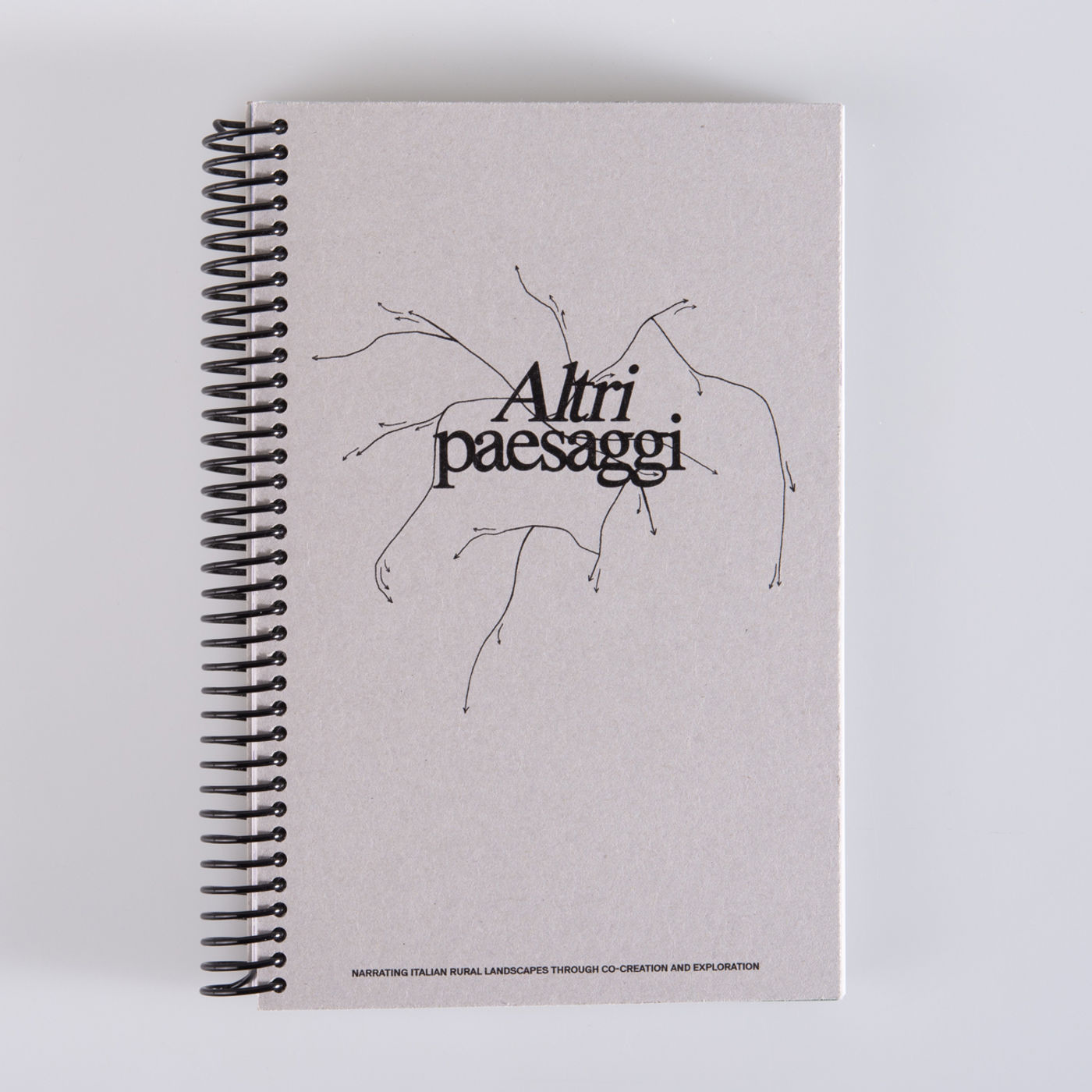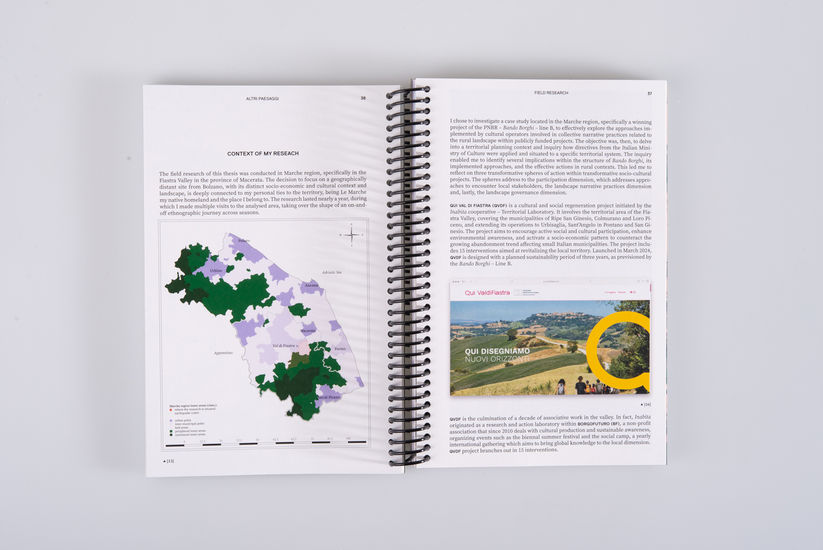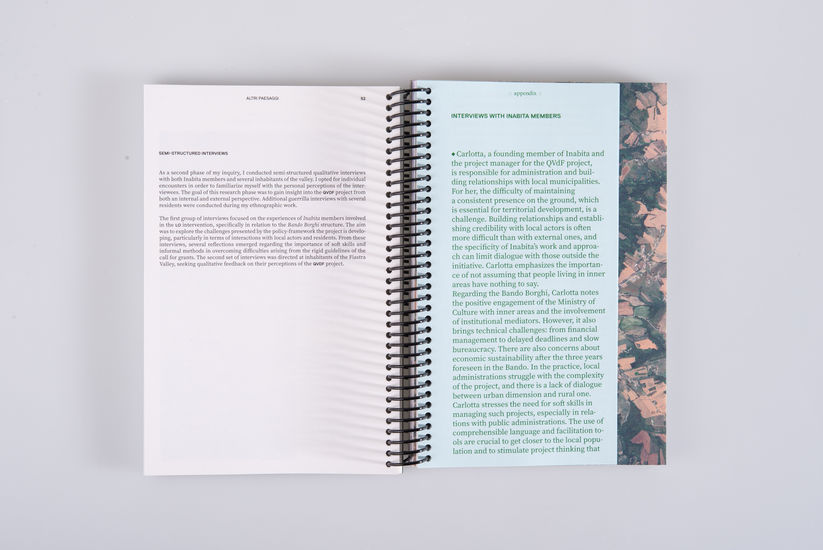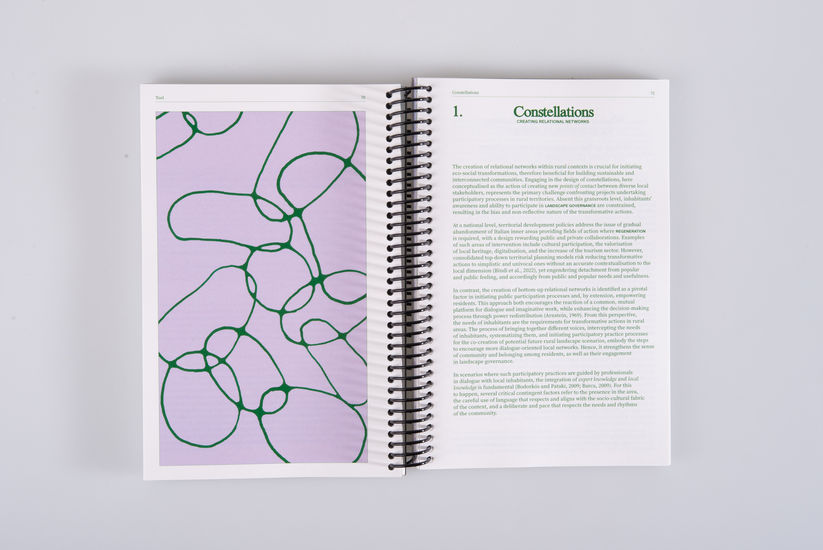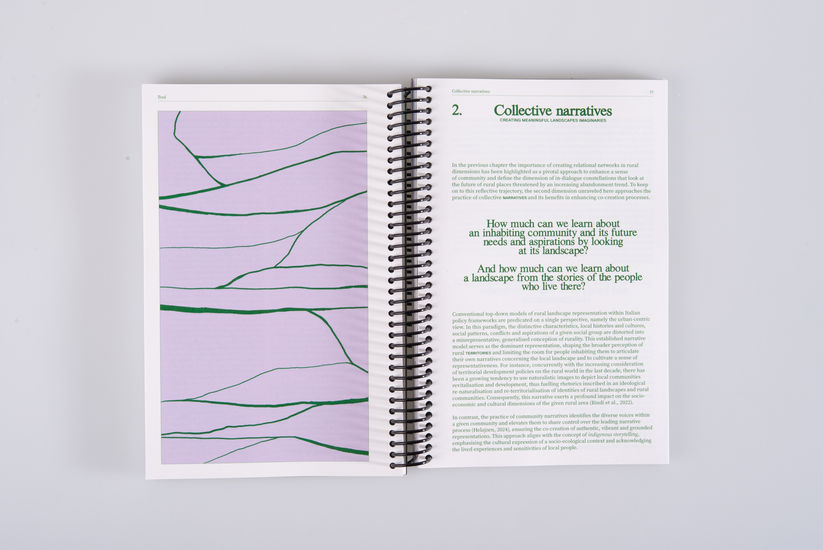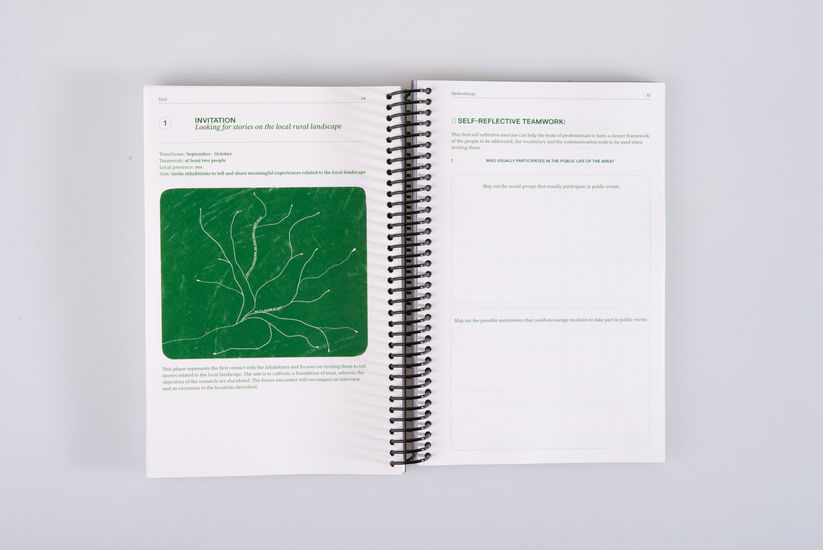Altri paesaggi
Greta Papaveri
As the urban crisis intensifies, rural areas have become central to political, socio-economic, and cultural debates, with new paradigms of rurality emerging, emphasizing environmental quality, wellbeing, and a slower life pace.
Altri paesaggi explores community-driven landscape governance through collective landscape narratives within the policy framework of the Italian Bando Borghi, a territorial programme aimed at addressing depopulation and abandonment of inner areas through socio-cultural regenerative projects. Despite representing a significant opportunity for Italian villages, critics asserts that the Bando risks reducing rural areas to idealized, tourism-oriented representations of villages. They argue the programme perpetuates a stereotypical narrative and implements top-down, quick-fix solutions that ignore the respectful rhythms of local transformation and do not reflect the situated aspirations of inhabitants of rural landscapes.
Altri paesaggi positions itself in this framework questioning whether other landscapes are existing beyond the dominant policy, media and tourism-marketing oriented representations. To answer this question, it delves into field research at the Val di Fiastra Landscape Observatory, part of the Qui Val di Fiastra project in Marche region, to investigate how professionals, in dialogue with local inhabitants, co-design future-oriented community narratives within the given policy framework. Using ethnographic methods, including participant observation and interviews, the research highlights challenges posed by Bando Borghi’s metrophilic approach and their repercussions on local involvement and participation.
Informed by field research insights and framing the research within the Landscape Observatory, Altri paesaggi advocates for a reflexive, inclusive methodology to engage rural inhabitants in co-creating grassroots landscape narratives, encouraging their capacity to aspire to futures that reflect their needs and local visions. For this end, an editorial tool has been designed for professionals who are activating participatory landscape narrative practices within territorial transformative actions. The tool integrates theoretical insights about the concepts of relational networks and the practice of collective narratives, with a methodology for co-creating rural gathering. Divided into five phases, the methodology aims to translate individuals’ subjectivity and emotional proximity to their surrounding landscape into the design of a series of rural gatherings oriented towards the activation of future dialogues on rural landscapes.

